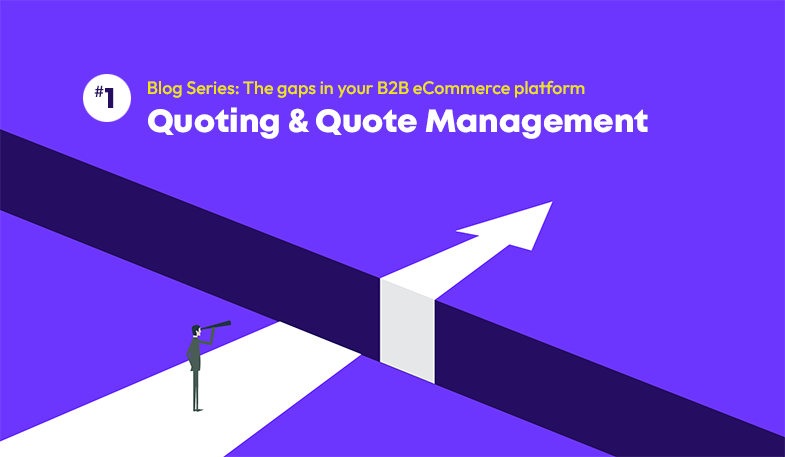eCommerce Platforms: To Outsource or Not? 4 Biggest Reasons Why Companies Make the Switch

Your eCommerce platform is a big time sink.
You’re thinking it right now—that’s why you’re here.
Reaching the point in your business where you’re considering an outsourced eCommerce solution is a great sign. It’s a signal that you’re ready to move to the next level with a matured digital platform to deliver your product or services.
As with any other aspect of your business, it’s still a decision that requires careful consideration as to whether to go in-house or outsource. DIY eCommerce can be an effective way to reign in your budget and keep responsible parties close at-hand; however, it also exposes you to pitfalls, including opportunity cost, security concerns, and stumbling blocks to further growth.
With that in mind, here are the four top reasons for you to consider outsourcing your eCommerce platform.
1. Specialization
Outsourced eCommerce teams who are good at what they do are dedicated to a singular cause: designing and building eCommerce solutions. You may very well have talented developers on-hand at your company, but without an extensive recruitment process, it’s unlikely that their expertise lies specifically in eCommerce.
An outsourced team is seasoned in:
- finding specific custom solutions;
- tackling repeated motifs in the obstacles inherent to the development cycle;
- troubleshooting problems post launch;
- dedicating all resources to eCommerce-specific tasks.
While your in-house team may be capable of taking on the role, it’ll come with opportunity cost.
2. Save Time
The process of delegating, overseeing, and launching your own eCommerce platform is still a costly endeavor when you consider the amount of talent and time that you’re dedicating to the enterprise. The opportunity cost presents itself in the form of man-hours taken away from product development, management, and any other aspect of your day-to-day that’s compromised by time you and your employees spend on the project. Let’s be honest—does that internal team have the available resources (time being the most important) to get the job done? Outsourcing helps you save money by saving time.
Solid planning, development and execution require time to create and build a solid end product. Consider how many hours the developer would need to devote solely to debugging and testing. Imagine a solution where that was no longer your concern.
3. Accommodate Growth
Proprietary systems hold a certain air of endearment in the hearts of their creators. Unfortunately, that air isn’t always shared with fresh talent. Maintaining a proprietary system requires that employees be trained from scratch to pick up the intricacies and (charming) pitfalls of your system. And if you ever find yourself in need of immediate extra help, you can’t simply find a consultant or train an internal resource to jump in immediately—there will be a steep learning curve.
You’re also confronted with the cost of maintenance and upgrades. As your organization grows, your ecommerce platform needs to follow. The right outsourced team helps you develop solutions that are future proof—platforms that you will not outgrow.
4. It’s What Your Clients Want
There are three major concerns that any individual approaches an eCommerce platform with in arguably equal importance:
- Ease of Use
- Security
- Payment Method
It’s possible that a talented in-house team can develop a user-friendly solution for your eCommerce platform. What’s unlikely is that you can provide the level of guaranteed security and fraud protection, along with the diversity of payment methods that are available to eCommerce outsourcers.
There are two major variables at play that make this issue pertinent: (1) Graduating to a more sophisticated eCommerce platform means that your business is doing well, and (2) considering in-house solutions means that you’re balancing a budget. In terms of priority, the security and breadth of the payment options will almost always take on a lower priority to other work.
When security becomes an afterthought, the solution will have gaps. Keep in mind that a lucrative business with poor security is a prime target for a cyber-attack. If you feel that a handful of bugs in your end-product are a concern that could be addressed with modest customer service, then you’re not considering that one effective exploit can turn into a security nightmare.
Your customers want a platform where they can make their purchase safely, quickly, and with whatever method of payment they prefer. That’s the basic level of expectation that you can place on any competent eCommerce outsourcer. Once the decision to make the switch is one that’s being pushed by the needs of your clients, the issue stops being one of opinion and rather one of a peer survey where the answer is clear.
Resource Center

A new blog series about the critical eCommerce capabilities missing in most eCommerce platforms for B2B companies. #1: Quoting & Sales Support

A closer look from the Ultra perspective on what we really mean when we talk about headless commerce and why it may not be right for every company.

Davis Art is now the only online K-12 publisher dedicated to the arts, creating top-notch curriculum and resources for art educators nationwide, all from the Ultra Commerce platform.
